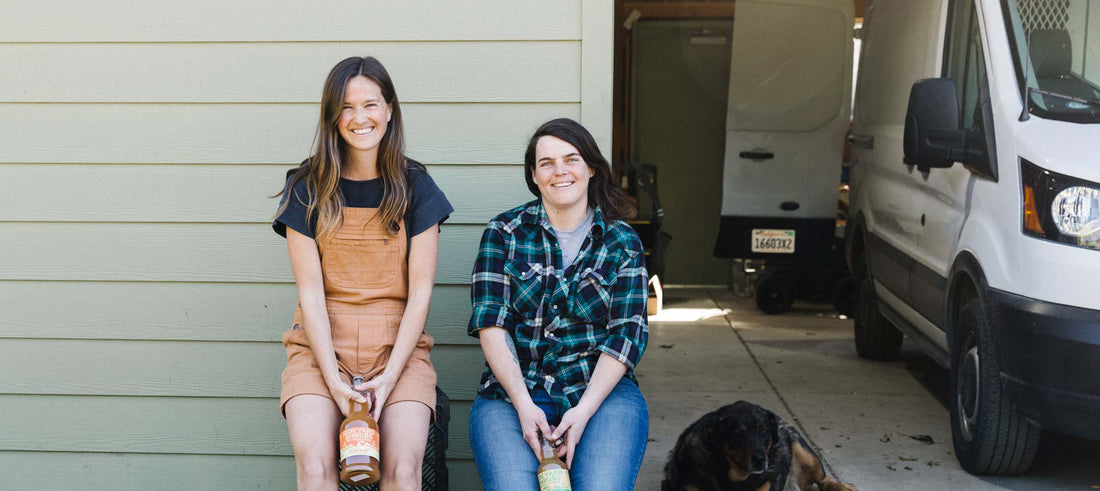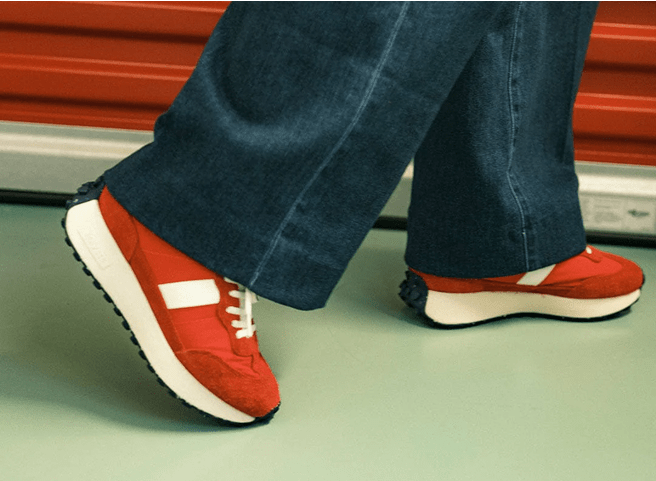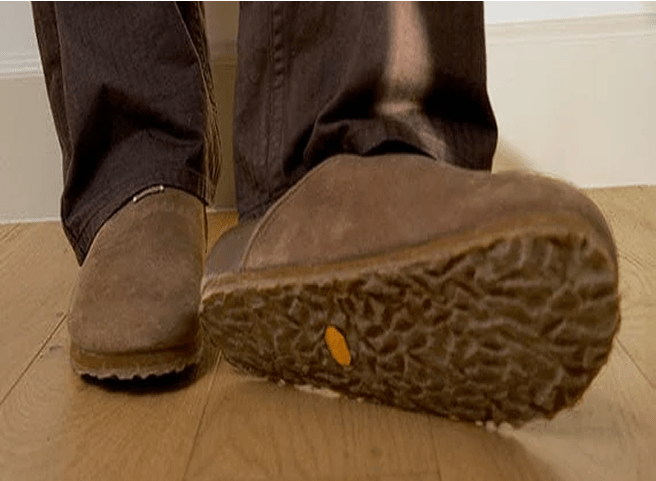Daydreamer Series: On Not Quitting Your Day Job
Sometimes pursuing your dream means saving it for the weekend. Sarah Bourke launched her fruit vinegar brand, Sideyard Shrubs, from a tiny apartment kitchen with the support of one very famous gardener.

If you’ve never heard of a shrub before, don’t worry — neither had Sarah Bourke when she discovered the fruit-infused vinegars a few years ago, and now she sells them in glass bottles plastered with folky, colorful labels. Sideyard Shrubs are the hometown hero of local cocktails, salad dressings and sparkling water, made with fresh fruit from nearby farms like The Abundant Table, a nonprofit farm and BIPOC worker collaborative in Ventura and The Ecology Center, an organic market farm in San Juan Capistrano.
As the former assistant of Patagonia founder and famed environmental activist Yvon Chouinard, Sarah is no stranger to entrepreneurial ideas. Two years into her own, she’s proving you don’t have to sacrifice your day job in pursuit of your daydream — but you might need a bigger kitchen.
As told to SeaVees. Photos by Sean R. Collier.
“I really got interested in all things farming and gardening through my grandmother’s garden. She was one of those women who, if you finished a plate and there was an olive left on it, would put it in a container and save it for the next day. I should also mention my parents are wine makers, so I was born and raised around good food and tasty beverages of all kinds, and was exposed to that culture at an early age. At this rate, I think it’s safe to say the curiosity I feel for fermentation is in my DNA.
I went to college in Santa Barbara and I knew immediately I never wanted to leave this place. Like every other Environmental Studies major, I was highly aware that Patagonia was located thirty minutes down the road — I mean, the ultimate job for someone interested in sustainability. I figured I’d get an internship, make connections, get a job offer and never have to leave the county.


It didn’t really work out that way. When I did join Patagonia, it was as employee number five at the company’s newly launched food division, Patagonia Provisions — back up in San Francisco [laughs]. I was hired as an assistant and an office manager. It was a hybrid role that they kind of made up for me, but I didn’t care, I would have swept the floors for free just to be part of the whole Patagonia ecosystem. I was there for a few years when my boss pulled me into a room and told me the Chouinard family was looking for an assistant for Yvon, Patagonia’s founder, and they wanted to know if I’d be interested. I knew I had to take the chance, it was a once-in-a-lifetime opportunity.
"At this rate, I think it’s safe to say the curiosity I feel for fermentation is in my DNA."
I promised myself I would find a way to stay connected to food since I wouldn’t be at Provisions anymore. I had worked at farms in Hawaii and Santa Barbara during college and really missed the community I had had through farming — I wanted to know the people growing my food at the farmer’s market. Then COVID hit, and suddenly I could volunteer once a week — they stuck me out in a field by myself, fully masked, with a few tasks to finish each day. It became so important and therapeutic to me during a really scary time when I didn’t know if I’d have a job anymore. I started going home with extra fruit from the farm, buying surplus, imperfect and otherwise unsellable fruit from the farm, and started making shrubs with it.

The first time I’d ever even heard the word shrub in the context of beverages was at a music festival in Napa — I’d ordered a turmeric shrub cocktail, I think. I took a sip and was like, “Holy mother of God, this is the best thing I’ve ever tasted in my life.” It was the sort of food experience that makes you panic it's so good. I ran back up to the bartender, and asked him what it was — it was fermented and sweet and kind of like kombucha but not? I couldn’t believe I’d worked at Provisions for years and had never heard of shrubs before. On the drive home I ordered all these books about shrubs and couldn’t shut up about it.
There was a loquat tree in our side yard, and down the street there was an orange tree, a fig tree, and a guava tree. My then-boyfriend (now fiancé) and I would scavenge just enough fruit from each of them to start filling these one-gallon glass jugs. How you traditionally make a shrub is by macerating fruit in sugar and cooking it over a stove, which creates this beautiful syrupy sugar bomb. I thought they were good but there was no way I’d drink them every day, so I started to add fruit with skins on to an apple cider vinegar base, let it infuse for 30-60 days, strain out the solids and that’s it — suddenly everyone I knew was getting little mason jars filled with my science experiments as gifts.
I applied to the public health department for a cottage permit, which allows people to make some food and beverage items in the home for sale. It was great because it had a super low barrier to entry — you’re not paying rent, you can’t hire staff, and allowed for proof of concept. At first, we’d fill a single one-gallon glass jar at a time. But then we’d get a bunch of strawberries and suddenly we’d have six jars, and then 12. Every single nook in our kitchen was full of jars, so we had to build these janky shelves for them, but we even outgrew that. At our max capacity, I think we’d reached 75 one-gallon jars in this tiny little apartment. You know how if people live with goats, they get used to the smell of goats? Well we were running a production kitchen full of stinky, vinegary fruit. Friends would come over and be like, “Oh my god, it stinks up here.” My fiance is the cleanest, most organized person and he’d hitched his wagon to a woman who is totally fine with making messes. At the one year mark, he was like, “I can’t live like this anymore.” There were huge spills, broken glass — it was mayhem.

I was really nervous to bring the shrubs into work, thinking I might get fired for having a side hustle, but if there’s one thing I knew about Yvon, it’s that he loves a weird food business. He’s in his mid-80s and is the most enthusiastic gardener you’ll ever meet — he would skip down the halls on Monday morning to talk to me about weekend gardening projects. We got along famously and had so much fun. He’s not a big vinegar guy, so when he tried the shrubs, he was like, “This is okay.” But for this birthday, I made him some fruit wine — and he was so excited to try it he cracked it open at 10am.
"A huge part of what I do at Sideyard Shrubs is create demand for small farms and regional agriculture."
We’ve moved production into a commercial kitchen space run by another husband-and-wife food company. They wrap up their work with their staff around 5pm, right when we’re getting off our day jobs, and we’ll spend one night every week making our shrubs. People have a lot of hometown pride in using and selling our product — the fruit comes from small farms, side yards, backyards, front yards, local trees, and it’s all made locally. Most of our orders come from me walking into local bars and coffee shops and asking if they’d like to try selling it or using it in their cocktails. I’m not an ecommerce wizard so I don’t do much online business — if I get an order a week I’m excited. I don’t want to sell, sell, sell — I go through great effort to work with the smallest farms I can possibly find. It’s not easy to plan around because fruit never comes into season at the same time.
Community keeps me motivated, moving and grooving in the right direction. A huge part of what I do at Sideyard Shrubs is create demand for small farms and regional agriculture and celebrate the farmers and growers in our community who grow the good stuff. I’ve met a lot of outstanding local farmers since I started Sideyard Shrubs, and I’m immensely grateful for those friendships and community connections.


Right now I work for Apeel, a food-science tech startup. They’ve figured out a way to extend the shelf life of produce using plant-based materials. Their big-picture mission is to reduce food waste across a global supply chain — it’s a full circle moment because it really aligns with the values my grandmother instilled in me. Apeel allows farmers to pick produce when it’s actually ripe instead of picking it super early, sticking it in cold storage for six months, and sending it on this long journey to the grocery stores. It keeps produce at peak ripeness by reducing oxidation — that means it can travel on boats instead of planes, which means we cut down on carbon footprints. Consumers get a fresh, tasty, ripe lime, not a hard, lifeless, weird little green thing. I’m passionate about what they are doing and I’m not ready to stop doing that work.
"I always say the day you plant the seed is not the day you eat the fruit. I live my dream on the weekends."
I get told to quit my job all the time. In my mind, good grows slow. I’m staying focused on wholesale, and maintaining existing and building new relationships with like-minded stores, community-based shops and farm stands to sell my shrubs. I have great momentum here in Southern California, and I’m starting to reach out to potential new wholesale partners in Northern California and grow the business up the sunshine coast. I do have five-to-ten year pipe dreams of living on a farm and calling it The Sideyard, with my own fruit trees and a market garden, and to live out my days farming, gardening, and making value added food and beverage products with fruit from The Sideyard.

It’s scary to quit a fulltime job and I’m not in a rush if I can keep doing both well. If I quit and did Sideyard full time, it would change my relationship with what I’ve built. Right now I wake up every morning motivated and excited about it, not stressed about giant accounts or sales pressure. I set little sales goals and if I don’t hit them, that’s okay. Of course I have dreams and ambitions about Sideyard, but I honestly really like my day job. I always say the day you plant the seed is not the day you eat the fruit. I live my dream on the weekends.”
Sarah wears the Bolinas Boot in Peacock Navy.


